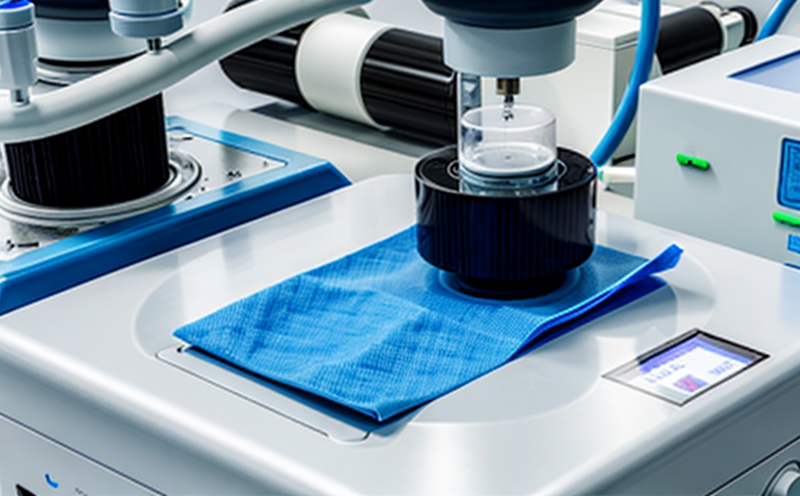Testing for synthetic material content in medical devices
The Crucial Role of Testing for Synthetic Material Content in Medical Devices Why Eurolabs Expert Services Are Essential
In the ever-evolving landscape of medical device manufacturing, ensuring the safety and efficacy of products is paramount. One critical aspect of this process involves testing for synthetic material content in medical devices. This specialized laboratory service, offered by Eurolab, plays a vital role in guaranteeing that medical devices meet stringent regulatory requirements and are free from contaminants that could compromise patient health.
What is Testing for Synthetic Material Content in Medical Devices?
Testing for synthetic material content in medical devices involves analyzing the composition of various materials used in device construction to ensure they do not contain any prohibited or unapproved substances. This includes examining the presence of impurities, residual monomers, and other unwanted by-products that may have accumulated during the manufacturing process.
Why is Testing for Synthetic Material Content in Medical Devices Essential?
In todays highly regulated medical device industry, manufacturers are obligated to adhere to strict guidelines set forth by governing bodies such as the US FDA (Food and Drug Administration) and the EU MDR (Medical Device Regulation). Failure to comply with these regulations can result in costly recalls, damage to reputation, and even loss of market access.
The advantages of using Eurolabs testing services for synthetic material content in medical devices are multifaceted
Key Benefits
Ensures Regulatory Compliance By identifying potential contaminants, Eurolabs testing services help manufacturers meet the stringent requirements set forth by regulatory agencies.
Protects Patient Safety Accurate testing ensures that medical devices are free from hazardous substances, safeguarding patients and preventing adverse reactions or injuries.
Enhances Product Quality Identifying and addressing manufacturing issues promptly helps maintain product quality, reducing the likelihood of recalls and associated costs.
Supports Brand Integrity Demonstrating a commitment to rigorous testing and compliance can boost brand credibility and customer trust.
Facilitates Streamlined Manufacturing Processes By identifying potential issues early on, manufacturers can optimize their production workflows, improving efficiency and productivity.
How Does Eurolabs Testing for Synthetic Material Content in Medical Devices Work?
Our state-of-the-art laboratory employs advanced analytical techniques, including
Gas Chromatography-Mass Spectrometry (GC-MS)
Liquid Chromatography-Mass Spectrometry (LC-MS)
Inductively Coupled Plasma Mass Spectrometry (ICP-MS)
These methods enable our skilled technicians to detect even trace amounts of prohibited substances, providing an accurate picture of a devices material composition.
QA Frequently Asked Questions About Testing for Synthetic Material Content in Medical Devices
Q1 What types of medical devices require testing for synthetic material content?
A variety of medical devices necessitate this type of testing, including implants, surgical instruments, and implantable leads. However, the specific requirements depend on device class and intended use.
Q2 How often should manufacturers test their products for synthetic material content?
Regulatory agencies recommend regular testing (e.g., annually or post-production) to ensure ongoing compliance and product safety.
Q3 Can Eurolabs testing services help with recalls due to non-compliance?
Yes, our expert analysis can aid in identifying the root cause of issues leading to recalls. We also offer consultation services to help manufacturers implement corrective actions.
Q4 Do I need to provide any specific documentation for testing?
Please submit relevant information about the device, including design specifications and manufacturing procedures, to facilitate efficient testing.
Conclusion
Testing for synthetic material content in medical devices is a critical component of ensuring product safety and regulatory compliance. By partnering with Eurolabs experienced team, manufacturers can rest assured that their products meet the highest standards, safeguarding patient health while maintaining brand integrity.




